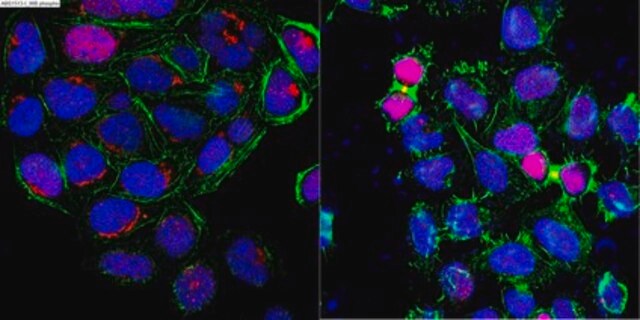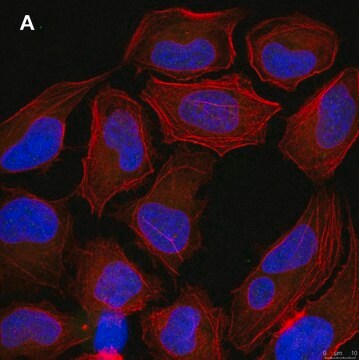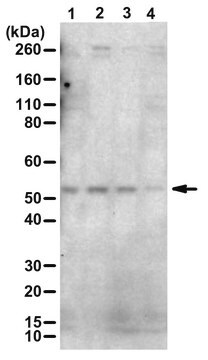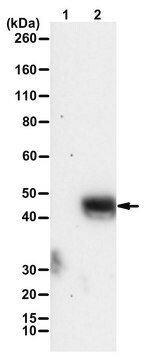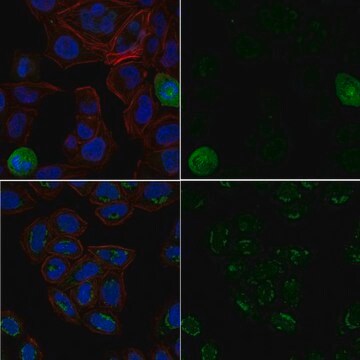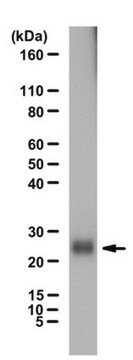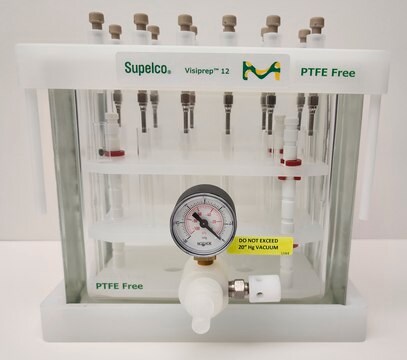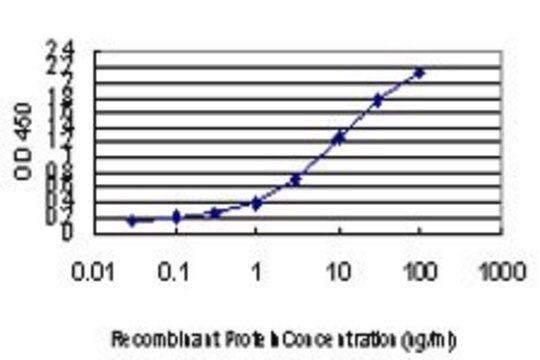About This Item
Produtos recomendados
fonte biológica
rabbit
Nível de qualidade
conjugado
unconjugated
forma do anticorpo
purified antibody
tipo de produto de anticorpo
primary antibodies
clone
polyclonal
peso molecular
observed mol wt ~28 kDa
purificado por
affinity chromatography
reatividade de espécies
human
reatividade da espécie (prevista por homologia)
mouse, chimpanzee, hamster, rat
embalagem
antibody small pack of 100 μg
técnica(s)
affinity binding assay: suitable
western blot: suitable
Isotipo
IgG
sequência de epítopo
N-terminal half
nº de adesão de ID de proteína
nº de adesão UniProt
Condições de expedição
2-8°C
modificação pós-traducional do alvo
phosphorylation (pSer67)
Informações sobre genes
human ... UBB(7314)
Descrição geral
Especificidade
Imunogênio
Aplicação
Evaluated by Western Blotting with a construct containing GST-tagged recombinant fragment of Ubiquitin phosphorylated on serine 57.
Western Blotting Analysis (WB): A 1:1,000 dilution of this antibody detected a construct containing GST-tagged recombinant Ubiquitin phosphorylated on serine 57, but did not react with non-phosphorylated construct. (Phospho-Ubiquitin construct: Courtesy of Dr. Jesse Rinehart, Yale University, School of Medicine).
Tested Applications
Affinity Binding Assay: A representative lot of this antibody bound phospho-Ubiquitin (ser57) peptide with a KD of 1.0 x 10-12 in an affinity binding assay.
Note: Actual optimal working dilutions must be determined by end user as specimens, and experimental conditions may vary with the end user
forma física
Armazenamento e estabilidade
Outras notas
Exoneração de responsabilidade
Não está encontrando o produto certo?
Experimente o nosso Ferramenta de seleção de produtos.
Código de classe de armazenamento
12 - Non Combustible Liquids
Classe de risco de água (WGK)
WGK 1
Certificados de análise (COA)
Busque Certificados de análise (COA) digitando o Número do Lote do produto. Os números de lote e remessa podem ser encontrados no rótulo de um produto após a palavra “Lot” ou “Batch”.
Já possui este produto?
Encontre a documentação dos produtos que você adquiriu recentemente na biblioteca de documentos.
Nossa equipe de cientistas tem experiência em todas as áreas de pesquisa, incluindo Life Sciences, ciência de materiais, síntese química, cromatografia, química analítica e muitas outras.
Entre em contato com a assistência técnica